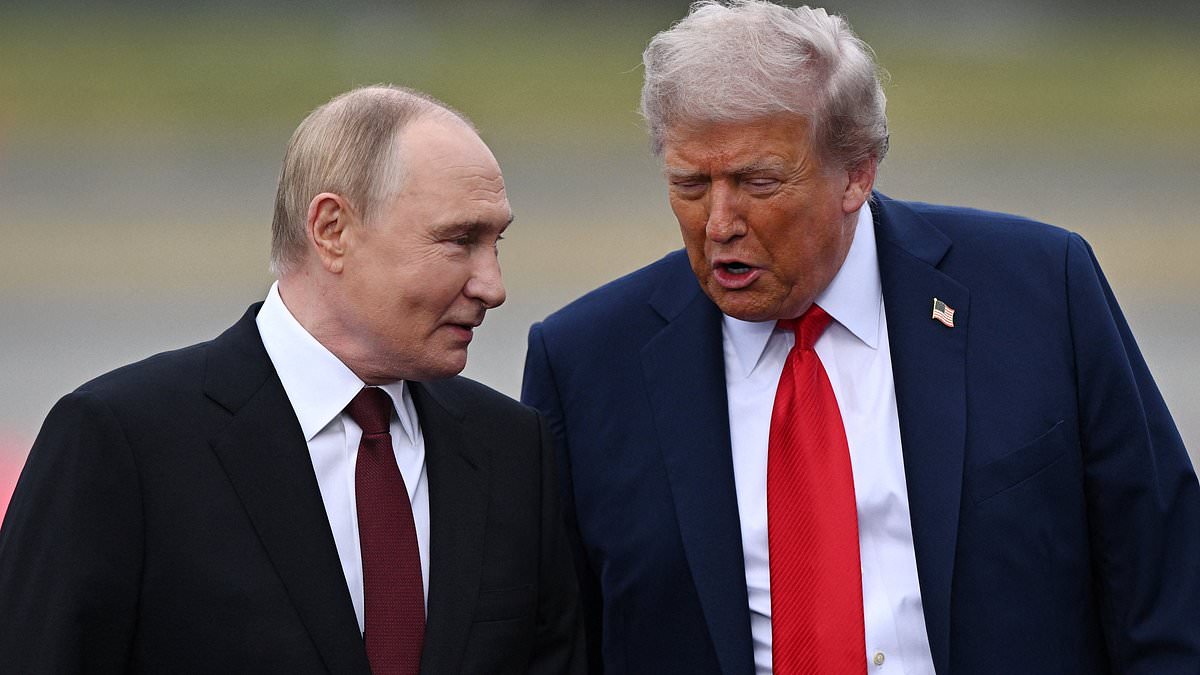
The dynamics of global politics have once again taken center stage as former President Donald Trump and Russian President Vladimir Putin’s strategies regarding Ukraine prompt renewed debates. Last week’s meeting in Alaska signaled clear intentions: Russia’s audacity and Trump’s seemingly hands-off approach towards Europe. The implications for Ukraine, Europe, and the global geopolitical landscape are profound.
Trump and Putin: A Shared Perspective?
Donald Trump’s diplomatic moves continue to puzzle critics and allies alike, with many questioning his motivations for seeming to align with Putin’s aspirations. Unlike previous American presidents who staunchly opposed Russia’s influence in Eastern Europe, Trump has adopted a perspective many see as isolationist. His ‘America First’ stance is resonant with his MAGA base, which views U.S. involvement in global conflicts as unnecessary strain on the nation’s resources.
Putin’s ambition is clear: reclaim control over Russia’s so-called ‘near abroad,’ including Ukraine. Trump, on the other hand, has shown little concern for Europe’s geopolitical wellbeing. This indifference positions Ukraine as a pawn in a larger game where America pivots its attention to the Pacific to address China’s growing influence.
Why Ukraine Matters
While Ukraine fights to preserve its sovereignty, Trump’s stance could lead to dangerous consequences. His administration—aided by voices like Vice President JD Vance—appears open to a resolution that prioritizes an exit strategy for the U.S., regardless of the costs to Ukraine’s independence.
Any potential deal may leave Ukraine to navigate a precarious future: either partition with strong Western security guarantees or a diminished, vulnerable state under Russian dominance. Both scenarios have dire implications for Europe and NATO.
Europe’s Role in the Balance
The reluctance of Trump’s administration to prioritize Ukraine has shifted much of the responsibility to Europe. In a remarkable show of solidarity, Europe’s leaders, including Britain’s Keir Starmer, have stepped up to support Ukraine. However, the question remains: can European nations, without robust American leadership, deter Russian aggression effectively?
For now, Ukraine’s fate remains uncertain. As the summer offensive continues, Putin seems emboldened, while Trump presses President Zelensky for concessions that critics fear could secure Russian dominance over Eastern Europe for decades.
How to Stay Ahead
What does this mean for the average reader seeking to understand the impact of international politics? It underlines the importance of being diligent, informed, and prepared for a future shaped by these geopolitical dynamics. On a personal level, moments of stress and uncertainty—whether tied to personal crises or world affairs—can weigh heavily on the mind.
Harnessing tools for mental clarity and stress management remains essential. One notable product to consider is the Headspace app, which offers guided meditations and mindfulness exercises to keep you grounded during tumultuous times.
Final Thoughts
As the 21st-century march of autocrats threatens to reshape the global order, the decisions being made today will have long-lasting consequences for democracy, security, and freedom. In the weeks ahead, all eyes will be on Ukraine, Zelensky, and the negotiations that may determine the nation’s future.





